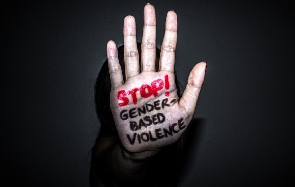 File photo: Stop gender based violence
File photo: Stop gender based violence
As we celebrate mother’s day today, it is important that we remind ourselves of the ordeal most women go through in their marital homes and seek ways to address this menace which has consistently been on the increase despite all interventions by various agencies over the last two decades.
Gender-based violence is in two-fold, but women most often fall prey to this social misconduct. Violence against women comes in various forms including; social violence, physical violence, psychological violence, economic violence and sexual violence. Report from the Ghana statistical service indicates that psychological violence has the highest percentage in Ghana.
This has been attributed to the fact that society and culture bestows a low status on womanhood and more to men.
It is estimated that one in every three women in Ghana are likely to experience gender-based violence and it is more prevalent in rural areas of the country.
Also, Statistics from the Accra Regional Office of the Domestic Violence and Victim Support Unit (DOVVSU) revealed that 31.9% of Ghanaian women faced at least one form of domestic violence in 2020.
This figure could be more as most women are afraid to report abuse meted out to them by their partners.
Several interventions have been initiated by various state agencies to address violence against women in the society.
In 1998, the Ghana police service established the Women and Juvenile Unit which was later changed to Domestic Violence and Victim Support Unit in 2005.
The Government of Ghana on its part passed the Domestic violence act in 2007 to criminalize the act. The Commission of Human right and administrative Justice has been popular in fighting crimes against women in Ghana.
Other non-state organizations such as; United Nations Population Fund (UNFPA), Federation of women lawyers, The Ark Foundation among others, have also contributed immensely to fight violence against women in the Ghanaian Society.
While all the effort by the state and related agencies are doing their best to bring an end to gender-based violence in Ghana, the reports over the years suggest these interventions are inadequate.
I strongly believe that ending gender-based violence is a responsibility for every member in our society.
Members of every community in Ghana need to receive enough education about violence against women and every community should have a representative to whom case can be reported to.
Also, Religious and traditional leaders should be given centre roles to advocate against violence against women.